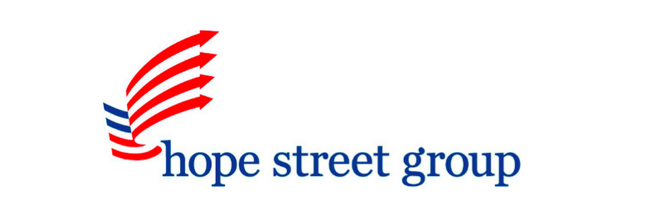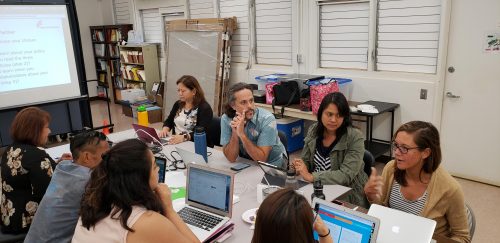 I clearly remember when I first heard that phrase, regarded as a rapidly tiring cliché by many working in the Hawaii public school system. I was at a lunch meeting a few years ago, when about 20 other Hawaii State Teacher Fellows and I were joined by then Deputy Superintendent Stephen Schatz. We were discussing the forward direction of the Hawaii DOE and hoped for change in the paradigm that predominated educational administration in Hawaii. The crux of Schatz’s belief is shared ownership over the school system, from teaching to curriculum to school design to administration. “Everyone a leader, everyone a learner, right?” he asked.
I clearly remember when I first heard that phrase, regarded as a rapidly tiring cliché by many working in the Hawaii public school system. I was at a lunch meeting a few years ago, when about 20 other Hawaii State Teacher Fellows and I were joined by then Deputy Superintendent Stephen Schatz. We were discussing the forward direction of the Hawaii DOE and hoped for change in the paradigm that predominated educational administration in Hawaii. The crux of Schatz’s belief is shared ownership over the school system, from teaching to curriculum to school design to administration. “Everyone a leader, everyone a learner, right?” he asked.
I seek creative, adaptive solutions to problems in the public education system, so hearing Mr. Schatz talk about his vision of shared leadership made an impression on me, a collaborative high school educator on a rural island. I decided then that flexibility can and should exist. I took him at his word when he explained how Complex Area leaders, principals, teachers, and students have the flexibility to design and run their schools as best fits their communities and visions. Nothing is mandated from the top down, he said repeatedly. I took him at his word then and also when he explained that the word “principal” is not a stand-alone word, but actually a shortened version of the phrase “principal teacher.” He mentioned this as a segue into changing the way we think about leaders.
And I have been thinking about that phrase ever since, weekly, maybe daily, especially in the last six months serving as a state office teacher focused on bridging the traditional divides between administrators and classroom teacher. “Principal teacher” ’is an earworm. Like a lyric that won’t leave, it’s always bouncing around my mind and I have come to believe it contains an answer for us.

But it also holds the problem.
In the intervening years I’ve thought about the problematic single word “principal” and found that the meaning dates back to at least the 1300s. It stems from the words “primus” (first) and “capere” (to take), which in turn is from an even older root “kap” (to grasp). So, the word itself means “first to take,” carrying the negative connotations of greed and a desire to assume credit that isn’t due. But it also means “first to grasp,” which has the added meaning of understanding. A principal is different than a principal teacher, who is the first to understand something while remaining a practitioner, in Schatz’s version and in my vision. That person, the principal teacher, is best positioned to lead through experience, through teaching, and through continued learning.
Can we square this idea with the system we have today? Do our principals prove to be those who truly grasp instruction, inclusion of student voice, equity? Or were they the first to take, the first to tell?
The word principal took on the meaning of an individual leader sometime in the 15th century, though in English, the sense of this word was not “leader of a public school.” That came later. The sense of the word was originally of a practitioner who was also “the head of a college or hall.” These were the “principal teachers” Mr. Schatz mentioned, practitioners who led their hall or college and worked in concert both with the other teachers and with the principal teachers of the other halls or colleges to run an effective educational entity. Their work as leaders was not divorced from their work as learners and practitioners. They were simply the principal educator for that school or building. This grounding of leadership in continued practice is largely missing in public education today. Our schools, our students, and I would even say the principals themselves, suffer for this absence.
As 2018 National Teacher of the Year Mandy Manning, NBCT writes, rigid education systems forget their paramount purpose, a purpose that is in theory shared by all of us in education, to serve the needs of our students. Flexibility in the public education system is necessary. Schools and districts need to become more flexible, need to return to the older sense of the word principal, need to embrace Mr. Schatz’s sense of the term principal teacher.
Can we… we must
Can we add instructional pathways to our state-level principal preparation programs on the way to administration? Can we envision an administration as a team made up of individual principal teachers, maybe even students, all with different strengths and perspectives? Can we see the pathway to administration not as an end to teaching and learning and the beginning of leadership, but as part of a teacher’s typical and expected growth?
As I see it, we need to. We need to find the flexibility to re-embrace the ideas inherent to principal teachers. We need to do the difficult things required of real change, which would have us break our rigid ideas and structures, and start over. We cannot continue to snip and adjust around the edges of an inflexible core, our teacher and administrator prep programs and school systems. We need to do those difficult things and recreate a more flexible education system that values learning and leadership from all and requires leaders to be expert practitioners.
